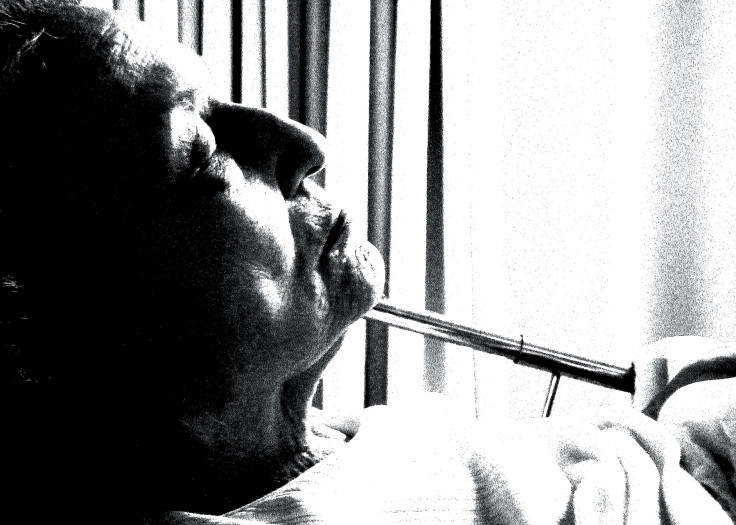Cancer Drug May Help Reverse Alzheimer's

Researchers from the University of Pittsburg reported last week they'd partially confirmed a controversial study last year showing a reversal of Alzheimer's disease in mice given an anti-cancer drug.
However, four other research teams have failed to replicate the results of the high-profile Case Western study published in the journal Science showing that mice treated with bexarotene — a retinoid approved to treat skin problems caused by T-cell lymphoma — recovered from Alzheimer's. In that study, researchers found that mice rapidly gained in intelligence while plaque in their brains causing the disease began within hours to disappear.
Case Western researchers said the drug worked by boosting levels of Apolipoprotein E, a protein that helps clear buildup of amyloid plaque in the brain, a key aspect of the disease. Publishing too in the journal Science, the Pittsburgh team reported they'd seen significant reversal of mental decline in the animal model, but were unable to verify the effect on plaques.
Dr. Rada Koldamova, a professor at the university who led the study, said she and her team were at the time of Case Western's study using genetically engineered mice to investigate a version of the human protein, Apolipoprotein E4, as well as Apolipoprotein E4. "We believe these findings make a solid case for continued exploration of bexarotene as a therapeutic treatment for Alzheimer's disease," she told reporters.
Dr. Iliya Lefterov, an associate professor at the university, co-authored the study. "We were already set up to repeat the Case Western Reserve University study to see if we could independently arrive at the same findings," she said. "While we were able to verify that the mice quickly regained their lost cognitive skills and confirmed the decrease in amyloid beta peptides in the interstitial fluid that surrounds brain cells, we did not find any evidence that the drug cleared the plaques from their brains."
Amyloid plaques are comprised of toxic protein fragments called amyloid beta, which cause brain damage thought to correlate with the memory deficits of Alzheimer's disease. The drug, a compound chemical associated with vitamin A, triggers retinoic x receptors fond throughout the body and brain. These receptors raise levels of the helpful protein.
The Pittsburgh research team splits with Case Western about how the drug works, however. They believe bexarotene functions by possibly decreasing soluble oligomers which, like the plaques, are comprised of the toxic amyloid beta protein fragments. They say the oligomers are comprised of the amyloid beta and are able to move, unlike the plaques.
Lefterov said she and colleagues in Pittsburgh found a significant decrease in soluble oligomers in mice given the drug. "It is possible that the oligomers are more dangerous than the plaques in people with Alzheimer's disease," she said. "It also is possible that the improvement of cognitive skills in mice treated with bexarotene is unrelated to amyloid beta and the drug works through a completely different, unknown mechanism."
In the experiments, mice with either variant of the human gene matched wits in cognitive tests with mice that did not have Alzheimer's, just 10 days after beginning treatment with the drug. The mice were challenged with a spatial test using cues to detect a hidden platform in a water maze, and were also tested for long-term memory in discerning between two familiar objects following introduction of a third, new object.
The drug therapy did not differ between male and female mice and did not impact weight or behavior.
The Pittsburg study may not appears to align with the other four studies that failed to completely replicate the Case Western findings, with regard to the movement of plaque from the brain. David Borchelt, a professor of neuroscience at the University of Florida, told reporters it was "important to publish the fact."
The four research teams all published separate dissenting papers in the May 24 issue of Science, along with the Pittsburgh study. "We wanted to repeat the [Case Western] study to see if we could build on it, and we couldn't," Borchelt said. "Maybe there should be some caution going forward in regard to patients."
Borchelt and other investigators said doctors should refrain from prescribing the drug for Alzheimer's patients until scientists understand how the drug works, if at all.



























